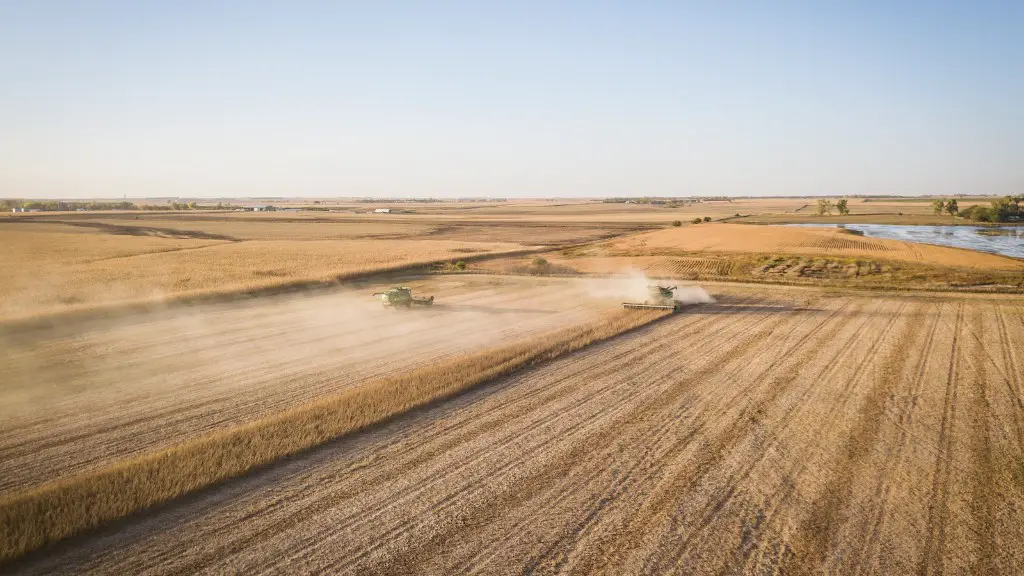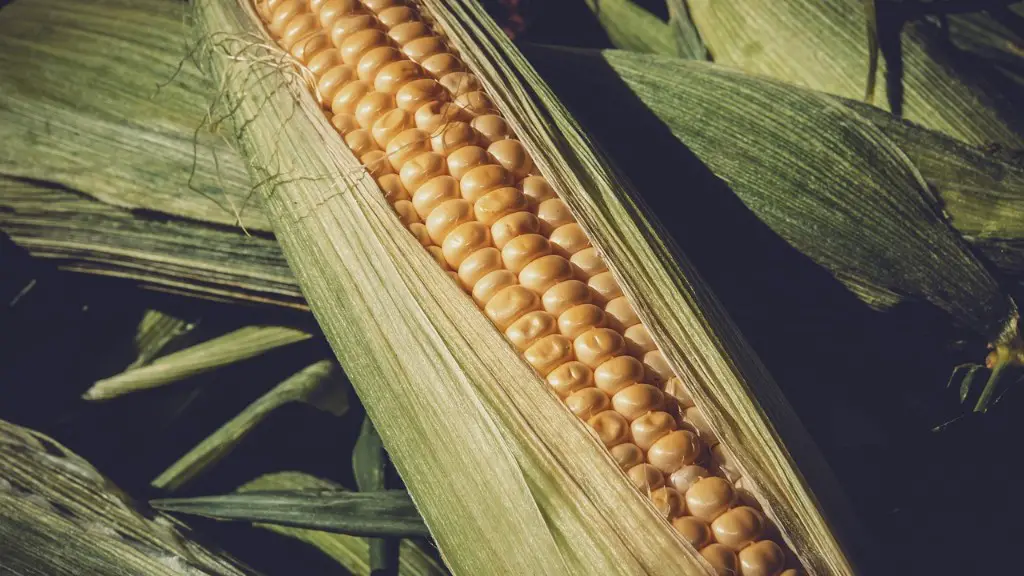The Department of Agriculture is an essential part of the U.S. federal government, led by a leader who shapes the direction of agricultural policies. Administrator of the Department of Agriculture is the leader of this influential institution, administering the policies and programs regulated by the department. Currently, the leader of the department is Tiffany Bailey, who has served since April 2019. Before her tenure, Sonny Perdue was the Administrator.
Tiffany Bailey has deep experience in agriculture, having dedicated the past two decades of her career to advancing the public’s understanding and investment in food and agriculture. She was appointed by President Kennedy in April 2019, making her the seventh leader of the USDA since its inception in 1862.
Tiffany Bailey is notable for her commitment to food security, especially for underserved communities, economic equity within the realm of food production and development, and research and innovation of sustainable agricultural practices. Her policy goals encompass diversifying the agricultural sector, promoting access to USDA resources for disadvantaged populations, and closing racial gaps in the food system.
During her tenure, Bailey has championed the School Meals Program, which provides healthy and free meals to students regardless of their family’s income level. This program alone has helped to ensure that more than 30 million children have access to nutrition. Another accomplishment of hers was her successful efforts to pass a drought relief package, to support Farms and Ranchers in areas impacted by drought.
To move the Department of Agriculture’s initiatives forward, Bailey relies on the expertise of the USDA’s deputy and under secretary positions, as well as the directors of the organization’s divisions and offices. She has appointed leaders from across the country – who are both men and women and come from different political backgrounds – to develop innovative solutions to the pressing challenges facing the food and agricultural sector.
Under the leadership of Tiffany Bailey, the Department of Agriculture has made numerous steps forward in regards to the previously mentioned initiatives. Finally, these include large-scale grants, research initiatives, and public-private partnerships to increase access to food and resources for individuals who may be facing financial and social constraints.
Challenges Faced By Tiffany Bailey
In her time leading the Department of Agriculture, Tiffany Bailey has faced a number of challenges from both external and internal sources. One of the most pressing external challenges comes from the uncertainty surrounding the agricultural sector due to climate change. As temperatures increase and the planet’s atmosphere changes, there are many concerns about the future of food production and resources.
Tiffany Bailey has also heard criticism from some who feel that the Department of Agriculture has not done enough to support small farmers and rural communities. To confront these concerns, Bailey has reached out to local and state leaders to listen to their perspectives on how best to support rural communities.
In addition, Tiffany Bailey has been responsible for managing the vast number of governmental policies and regulations that the department oversees. This includes overseeing and implementing the food safety and nutrition standards set by the Food and Drug Administration, as well as coordinating the Farm Bill and other agricultural subsidies.
Bailey has also had to tackle the challenge of addressing the persistent racial gaps in the agricultural sector, a task made difficult due to disparities in access to land, capital, and other resources. Bailey has proposed policies to close these gaps, such as expanding access to Farmer’s Markets, providing minority farmers with access to capital, and granting support for rural broadband.
Finally, Tiffany Bailey has had to face the challenge of ensuring the Department of Agriculture is using its resources effectively to ensure the best results from government-funded programs. To this end, she has created oversight policies and implemented measures to increase transparency and accountability within the department.
Impact of Tiffany Bailey’s Leadership
In the two years since Tiffany Bailey assumed the leadership of the Department of Agriculture, the department has accomplished much in terms of improving access to food and resources for disadvantaged communities, promoting food security and sustainability, and advancing equitable policies across the agricultural sector.
Through Bailey’s leadership, the department has been able to secure federal funding for large-scale grants and initiatives aimed at combatting food insecurity and promoting sustainable agriculture. With her guidance, the department has developed and implemented policy measures to ensure small farmers and rural communities have access to the resources they need to thrive.
In addition, Bailey has been an advocate for racial equity in the food system, and she has taken action to close racial gaps in the industry. Finally, she has spearheaded efforts to make the department more efficient, transparent, and accountable to its constituents.
Future of The Department Under Tiffany Bailey
Looking ahead, it is clear that Tiffany Bailey hopes to continue to advance the Department of Agriculture’s initiatives with the same vigor as before. Going forward, some of the department’s top priorities will include increasing access to agricultural education and resources, accelerating rural broadband access, and increasing sustainable agricultural practices.
Moreover, Bailey has made clear her commitment to continuing her work to close the racial gaps in the agricultural sector. She has proposed a number of measures to accomplish this task, from granting targeted lending to minority farmers and ranchers, to providing support for minority-owned and operated Businesses, to ensuring equitable access to land, capital and other resources.
Finally, Bailey has also indicated that she will continue to implement adaptive oversight policies and practices across the department, to ensure transparency and accountability within the organization. In this way, Bailey hopes to ensure that the Department of Agriculture can effectively tackle the challenges it faces and can continue to provide the best possible resources and services for its constituents.
Public Opinion of Tiffany Bailey
Since Tiffany Bailey became the leader of the Department of Agriculture, her tenure has received both praise and criticism from a variety of stakeholders. The general public is largely in support of Bailey’s leadership, praising her for her commitment to food security and her focus on providing resources to underserved communities.
Moreover, Bailey’s efforts to close the racial gaps in the food system, as well as her emphasis on transparency and accountability within the department, have been well received by the general public. Finally, her appointment of a diverse group of leaders from across the country to serve in the USDA’s leadership positions is also viewed positively by many.
At the same time, there are some who feel that the Department of Agriculture under Bailey has not done enough to support small farmers and rural communities. Others feel that the department has not done enough to combat climate change, an issue of growing importance for the agricultural sector.
Overall, Tiffany Bailey’s tenure as leader of the Department of Agriculture has been widely perceived as a success. She has faced several difficult challenges, but she has managed to tackle them with an unwavering commitment to her vision for the future of the organization.
Legacy of Tiffany Bailey
Tiffany Bailey is likely to leave a lasting impact on the Department of Agriculture and the agricultural sector as a whole. Through her tenure as leader of the department, she has implemented innovative initiatives and policy measures that have sought to improve access to food, resources, and education for underserved communities.
Bailey has also championed the cause of racial equity in the food system, taking action to close the persistent racial gaps in the industry. Lastly, Bailey has worked to increase transparency and accountability within the department, in order to ensure that the organization is using its resources effectively.
In the future, Bailey’s legacy is likely to remain connected to the Department of Agriculture and its initiatives. Her work has helped to set the department up for success and to ensure that the organization remains focused on the important task of food production and security.
Tiffany Bailey’s commitment to the cause of the Department of Agriculture is admirable. Her tenure stands as a testament to the power of visionary leadership and her legacy will remain for years to come.





